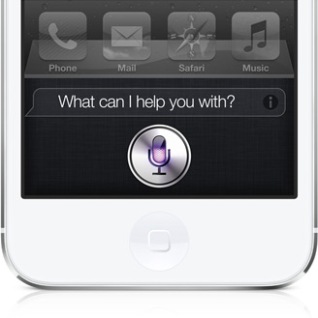Human Computer Interaction has changed the way that we live our lives in a number of ways. This blog post will go into detail about what effects it has had.
Society
The main impact that HCI has had on society is improving the ease of use of computers and other devices. Modern computers and other electronic devices do not require the user to have as much training or specialised information as they used to. User interfaces on consumer products such as computers, mobile phones, tablets or televisions are designed with ease of use in mind. UI designers try to ensure that the input and output processes are as simple and easy for the user as possible. An example of this is touch screen technology. In the last five years it has become very popular in portable devices like mobile phones and tablets. Another example that has yet to take off like touch screens is voice recognition. Different companies have experimented with voice recognition such as Apple with their Siri service but it has not become as widely used as touch screen technology. The technology still has problems with accurately recognising what the user is saying, and many people do not want to use the technology because asking your phone to do things in public may seem odd to others.
All of these developments are designed to move towards making electronic devices more friendly to users. Specifically, people who are not experienced with devices like this and usually find them too complicated to use. These developments are designed to make these devices more accessible for these people and to increase the amount of people that are able to use these products.
There have also been developments designed to help people with disabilities or impairments to use electronic devices. Text-to-speech technology on computers and audio descriptions on televisions exist for people who have sight problems. Developments have also been made for military applications. Remote control drones can now be used for reconnaissance, search & destroy or searching collapsed buildings. This is a much safer way to go about these missions than sending in real people.
Culture
HCI is greatly changing our culture due to the way that electronic devices are becoming a bigger part of our everyday lives, with more features than ever to help us during the day. Moore’s Law states that computer power will double every two years. This means that the amount of tasks that electronic devices will become more varied and complex as time goes on. They will continue to become more and more integrated into our lives.
An example of this happening is the advancement of smartphone technology. Today’s smartphones are incredibly capable, being able to perform things that only computers could do several years ago. For many people, a smartphone now does everything they need an electronic device for and they no longer have need for a proper computer. Some smartphones even come with multi-core processors – a technology that is still relatively recent for desktop and notebook computers. Smartphones are also experimenting with new technologies such as text-to-speech, voice recognition, augmented reality and multi-touch screens. Mobile internet on smartphones allows for easy communication over services like Twitter or Facebook. Entertainment is also easily accessible with services like Netflix or Lovefilm that have mobile applications.
There are positive and negative impacts of HCI on the culture of developing nations. New technology can help people communicate and be entertained but it can also negatively affect their existing culture and way of life.
Economy
The constant development in HCI technology has increased people’s productivity massively. The advances in both computers and robotics means that many manufacturing tasks can now be completely automated. Factory machines are in many ways easier to use than human workers on production lines for things like cars. The distribution of documents and other files has become much easier thanks to technologies like email and text messages. Smartphone technology takes this further since documents can be edited and sent while the user is on the go.
Many companies have now set up E-Commerce websites which allow them to sell their items online. This has many advantages over a regular retail store. An E-Commerce website is much cheaper to set up than to build a physical store or rent out the space. It is also more convenient for users since they do not need to leave their home and go to the store. Now, they can simply visit the website, browse the products available and purchase whatever they want.
Many types of input can be sped up with HCI developments. Things like barcodes need to be read faster for more efficient operation in a shop. HCI developments have allowed for newer barcode readers that can scan them much quicker than before. Without this kind of speed, much more time would be spent at the checkout of a store.





Pingback: HCI | howhashciimpacted
Pingback: The impact of HCI on society, the economy and culture | theimpactsofhciblog
Pingback: Human Computer Interaction Blog | charliehci